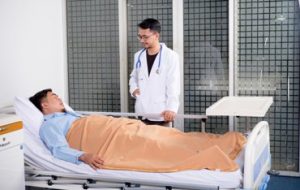Elective Procedures Safety Measures
The coronavirus pandemic has left people with many unanswered questions, such as questioning the status of their elective health care procedures. Some are wondering whether or not they should keep their elective care appointments or stay away from the doctor’s office altogether. Elective services that have been suspended in previous months are now potentially on the rise again. In June, KFF reported that almost half of adults in the U.S. canceled or postponed their doctor visits due to the threat of the pandemic. This is troubling for people who are seriously ill and need to be in regular contact with their doctors. In order to gain the confidence to return to their regular appointments, patients need to know what clinics are doing to ensure everyone is practicing proper precautions. Find out what you can do to make sure you are taking the right steps to practice proper elective procedures safety measures:
1. Plan Ahead
Contact your doctor’s office at least a week in advance to find out what they expect of you at your upcoming appointment. Inquire about what the office expects of you, as well as what they are doing to maintain a sense of security. Project Patient Care created a guide to help patients decide what questions they need to ask before coming to their appointment. Find out if and how you will be distanced from others and if everything will be cleaned thoroughly between each patient. Never be afraid to ask questions, “where people get in trouble is when they’re afraid to bring their concerns forward.”
2. Find the Right Care for You
 With elective procedures safety measures now in place, many people have reported being impressed with how their doctor’s office or clinic has handled seeing patients amid the pandemic. Most places will be taking temperatures and doing some sort of screening prior to allowing patients to enter the building one at a time. Further, regularly used items such as pens and clipboards should remain separate from each other and be sanitized after each use. Try to fill out any necessary forms online, most places already prefer this but it’s good to check if you are unsure. Lastly, check with the clinic to see if you should be waiting in your car until they call you in, this is perhaps the best way to avoid coming into contact with other patients.
With elective procedures safety measures now in place, many people have reported being impressed with how their doctor’s office or clinic has handled seeing patients amid the pandemic. Most places will be taking temperatures and doing some sort of screening prior to allowing patients to enter the building one at a time. Further, regularly used items such as pens and clipboards should remain separate from each other and be sanitized after each use. Try to fill out any necessary forms online, most places already prefer this but it’s good to check if you are unsure. Lastly, check with the clinic to see if you should be waiting in your car until they call you in, this is perhaps the best way to avoid coming into contact with other patients.
3. Caregiver Policies
Many seniors require caregivers, so if you need to be accompanied to an appointment then it is important that you contact your doctor’s office before scheduling to see if they allow a second person to attend the appointment. If you are a caregiver, it is always acceptable to ask the clinic if they would make an exception for someone who needs assistance, but make sure you are wearing gloves and a mask, even a gown if you are asked to. In the off-chance that they do not allow a caregiver, make sure to exchange contact information with whoever will care for your loved one and ask that they be in regular contact with you. Keep in mind that it is possible that some clinics will deny a second person coming to the appointment so they can practice proper elective procedures safety measures.
4. Wrapping Up…
For anyone who has been hospitalized during the COVID crisis (on non-COVID related conditions), they may become fearful that they are now infected with the virus. Before being discharged, it is important to find out if you should quarantine at home or if you will be tested for the virus before leaving. If follow-up care is required, find out what can be done via a telehealth appointment and download the necessary apps (i.e. Zoom, Skype, etc.). Lastly, if home care is necessary, make sure that whoever is brought in to care for you is taking all precautions and has been trained to know the symptoms of COVID. Whether at a facility or at home, caregivers need to be practicing elective procedures safety measures.
Medicare Questions?
Empower wants to help you get the best insurance for your needs and the most for your money. We want to help you stay on top of your health.
CALL US at (844) 410-1320

